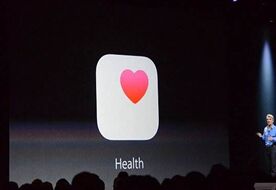正文
健康应用数据为研究员带来机遇和障碍
Data from health apps offers opportunities and obstacles to researchers
健康应用数据为研究员带来机遇和障碍
Researchers are eager to tap into the steadily expanding pool of health information collected from users by products like Fitbit, Clue, and the Apple Watch. But while these datasets could be a scientific treasure trove for scientists, they also pose ethical challenges that need to be addressed.
研究员正迫切利用Fitbit、Clue和Apple Watch等健康应用产品收集到的不断稳定增长的用户健康信息。虽然这些数据库对科学家来说可能是一份科学宝库,但同时,它们也带来了需要解决的道德挑战。

"There are huge opportunities. I think that's the attraction," says Ida Sim, director of digital health for the Division of General Internal Medicine at the University of California, San Francisco. Sim explains that part of the appeal for scientists is that the apps and tech are designed to appeal to the general public. A commercial app or device with an easy, attractive interface is primed for long-term use by far more people than can usually be included in a research study. "As opposed to a clunky research wristband, which is ugly, and people won't wear it," she says.
“我们面临着巨大机遇,我认为这是其特点之一,”位于旧金山的加利福尼亚大学内科综合部的数字健康主任艾达·西姆(Ida Sim)说道。西姆解释道,应用和科技旨在迎合大众,这是吸引科学家的地方。一个商业应用或设备,其界面简单、有吸引力,已可以为大众长期服务,其服务人数比一项研究所涉及的受试者更多。“这与研究所涉及的既笨重又不美观的表带相反,没人愿意带这种表带,”她说道。
Researchers are taking advantage of the better design of their corporate counterparts, and in some cases, companies are especially eager to collaborate. This spring, the period tracking app Clue offered funds to researchers hoping to use Clue users' cycle tracking data to answer scientific questions. The company had previously provided data to researchers who approached it directly, but the grants marked a formalization of their existing program.
研究员正利用企业同行设计的更好产品,在某些情况下,这些企业乐于合作。今年春天,经期跟踪应用Clue为研究员提供资助,这些研究员希望利用Clue用户的经期追踪数据解答科学问题。在此之前,该企业已向直接联系的研究员提供了数据,但这些拨款标志着现有计划正式落实。
"It's been an evolving conversation," says Amanda Shea, research collaborations manager at Clue. "Our dataset is big enough now, and we have more of the proper protocols in place can ensure users aren't at risk through data sharing, that we can more actively participate in research."
“这是一场不断提升的对话,”Clue公司的研究合作经理阿曼达·西亚(Amanda Shea)说道。“目前,我们的数据库已达到相当大的规模,更多确保用户不会因数据共享而面临风险,且Clue员工可以更积极参与研究的协议也已就位。”
Unlike academic researchers, app companies like Clue are explicitly designed and have the resources to collect and maintain large amounts of data. On the other hand, commercial apps usually aren't designed for research, which demands predictable, transparently collected, and granular data. Sometimes, that means app-generated information is actually less useful to researchers, says Olivia Walch, a postdoctoral student studying mathematics and circadian rhythms at the University of Michigan.
与学术研究员不同,像Clue这样的应用程序公司设计明确,且拥有收集和维护大量数据的资源。另一方面,商业应用程序通常不是为研究而设计的,因为研究需要可预测,透明收集和细化的数据。有时,这意味着应用程序带来的信息实际上对研究员并无多大用处,密歇根大学数学和昼夜节律专业的博士后学生奥利维亚·瓦尔希(Olivia Walch)说道。




 手机网站
手机网站